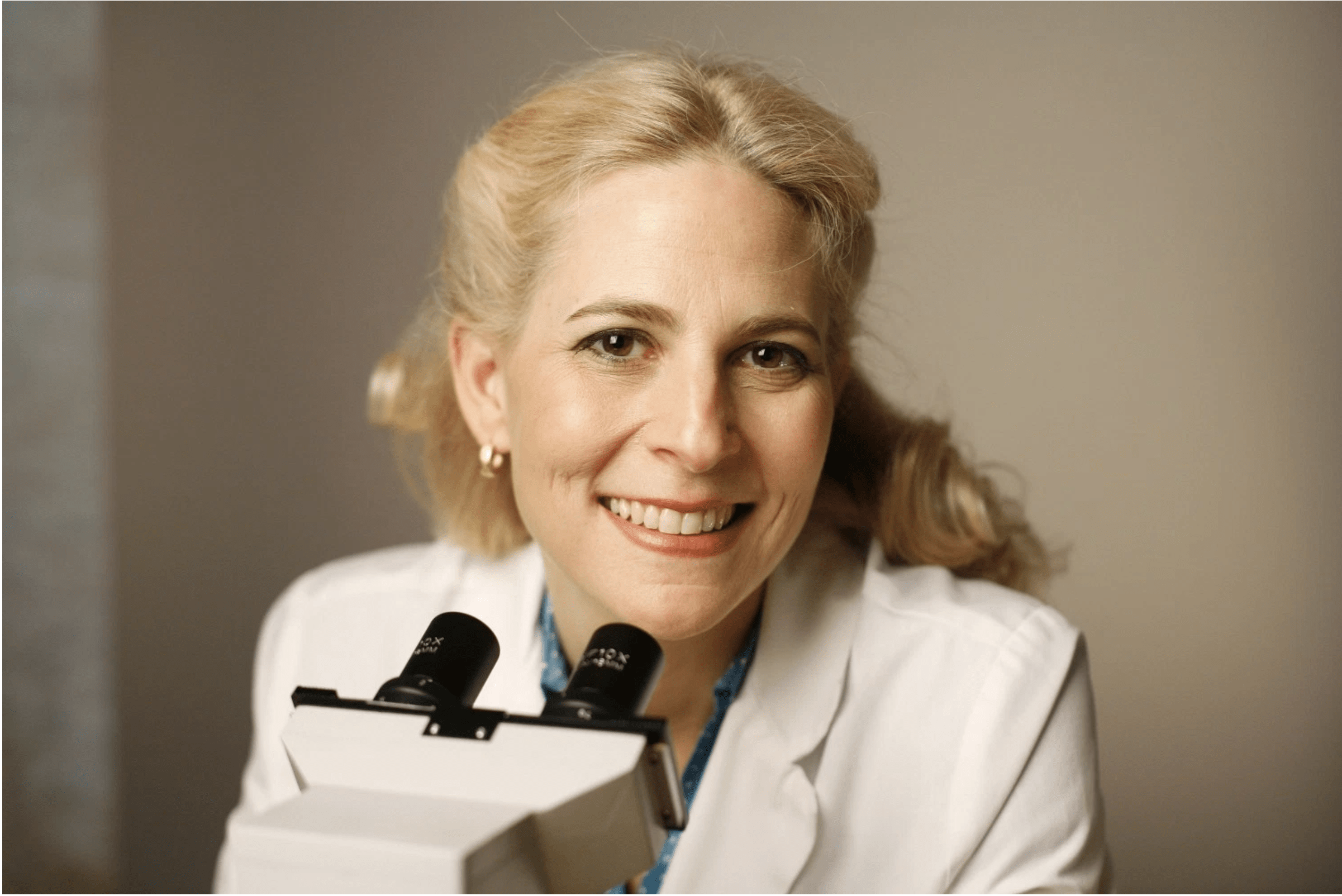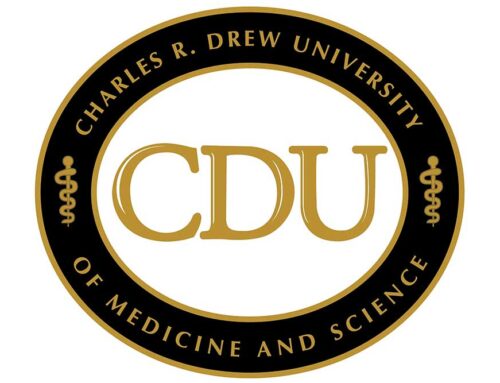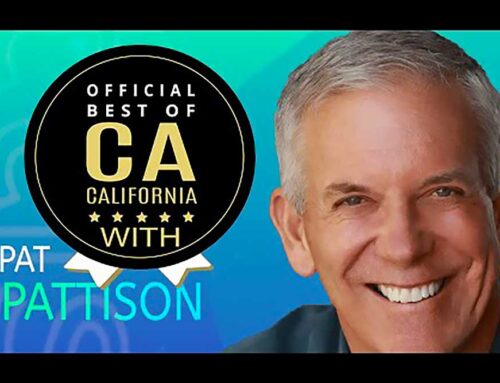
“Our political environment is toxic, but it doesn’t have to stay that way forever. People need to be more socially aware, and I would encourage them to get more involved in taking action to create change. If you feel something in life isn’t fair, do something about it! Find out how you can lead the way to make a difference.”
I had the pleasure of interviewing Dr. Celina Nadelman, M.D., who uniquely serves as both a board certified cytopathologist and an “interventional” pathologist performing and interpreting fine needle aspiration biopsies (FNA). Dr. Nadelman is the founder and laboratory director of Precision Aspiration and Biopsy in the Beverly Hills area of California, where she practices the most advanced FNA techniques and diagnostic capabilities. In addition to operating her practice, Dr. Nadelman also performs the same dual-role pathology and FNA services at LA County’s Martin Luther King, Jr. Outpatient Center, and is a clinical instructor at UCLA’s David Geffen School of Medicine Greater Los Angeles Training Cytotechnology Consortium.
Thank you so much for doing this with us! What is your “backstory”?
In college, I double-majored in Bio-Psychology and Studio Arts, worked in neuroscience research at the University of Rome, La Sapienza and then decided to go to medical school. After attending medical school at the Keck School of Medicine at the University of Southern California (USC), I began my residency training in Internal Medicine at the West Los Angeles VA — UCLA program, however this field was not quite right for me. Thereafter, I was in a research fellowship at USC for wound healing. During my academic journey, I realized that I really liked pathology, especially anatomic pathology, because looking at tissue under a microscope is all about pattern recognition: it is all visual, very much like art. I completed my residency in anatomic and clinical pathology at UCLA and went on to complete a cytopathology fellowship there. It was early in my residency that a doctor came to speak to us about his unique practice: a stand-alone (that is, not hospital or large laboratory associated) pathologist-run FNA clinic. Being a pathologist who studies slides in a lab all day wasn’t enough for me. As I like working with my hands, performing procedures, as well as figuring out the outcome — that is, being at the beginning, middle and end — of the diagnostic process, I realized that becoming an FNA specialist was exactly what I wanted to do.
Can you share the funniest or most interesting story that happened to you since you began leading your company?
A 73- year-old woman comes to see me with her husband, who happens to be a retired physician. She is in my office because she has a lump behind her left ear, discovered during a dental exam. She is terrified, as she is a recent breast cancer survivor. So much so, that she wouldn’t even let her husband touch the area. As part of the work up, subsequent imaging of the lesion reported “right level — a pathological lymphadenopathy with necrosis, consistent with metastatic disease”. This meant a death sentence to her. As indicated in the report, she likely had breast cancer that metastasized to the left head and neck lymph nodes. Reflecting on this, I found this odd, as this would mean the tumor would have to cross the midline, which is quite unlikely. However, her own primary care doctors, oncologists and radiologists were convinced that she had metastatic breast cancer. As I was preparing the patient for the biopsy, by viewing the lesion under ultrasound (hypoechoic lobulated right neck nodule) and by cleansing the skin, I noticed she had a scar behind the ear…Not wanting to be rude (as many of my patients undergo plastic surgery) but also needing to be thorough, I asked her what the scar was from. She responded that it was from surgical removal of a benign salivary gland tumor years ago. At that moment, from the ultrasound image together with her pertinent past medical history, I had a suspicion that what she likely had was a recurrence of that benign tumor. After performing the ultrasound-guided FNA, I immediately stained the slide and looked under the microscope. And low and behold, my hunch was correct: the nodule was a recurrent pleomorphic adenoma, a benign tumor of the salivary gland and NOT breast cancer. I told the patient right then and there. The relief on her and her husband’s faces were indescribable. She told me she hadn’t slept in weeks and now she could rest easy.
What do you think makes your company stand out? Can you share a story?
For most people who need a biopsy, their doctor performs the FNA or they go to a clinic to have the biopsy done, and then the material gets sent to a pathology lab to be analyzed. I am one of very few doctors in the U.S. who operate a combined FNA clinic and in-office laboratory, where I perform biopsies and also analyze them. I have performed and interpreted thousands of FNAs of palpable and non-palpable (ultrasound guided) masses and have one of the highest rates of obtaining diagnosable samples on the first effort, virtually eliminating the need for repeat biopsies. I perform onsite evaluations and provide diagnostic results to doctors usually within 24 hours, therefore alleviating patient anxiety.
Are you working on any new or exciting projects now?
I am trying to validate molecular testing for detecting the presence of high-risk HPV in head and neck cancers. Now that many oropharyngeal (throat) cancers are found to be due to HPV, many doctors want to know whether their patient’s throat cancer that metastasize to the neck lymph nodes is HPV positive or not, because this type has a better prognosis and treatment is different. Testing for high risk HPV directly is already done on cervical pap smears using liquid based media (i.e. ThinPrep), and it doesn’t need a lot of material to get a result. However for oropharyngeal cancers, the diagnosing process currently involves obtaining more material than the direct molecular HPV tests used for pap smears. Therefore, having a molecular HPV test for head and neck cancers would be of great use.
What advice would you give to other CEOs or founders to help their employees to thrive?
I believe everyone has a role to play within the organization. From janitors to CEOs, each member of the company deserves to work in a happy atmosphere, so it’s important to create a culture where your team is honored with respect and recognition, encouraged and celebrated for their achievements. Creating a workplace structure where there is a strong balance of both hard work and comradery is vital if you want to foster loyal and dedicated employees.
None of us are able to achieve success without some help along the way. Is there a particular person who you are grateful towards who helped get you to where you are? Can you share a story about that?
Dr. Richard Horowitz convinced me to go into pathology from the very beginning. He taught me how to interface between myself and those working closely with me in the hospital and in private practice. In addition, Dr. David Lieu, also a pathologist and FNA specialist, both inspired me and encouraged me to follow this particular career path. He introduced me to this new way of practicing pathology — as an interventional FNA pathologist. I valued his expertise. He was open with me and he believes in giving back to those who want to learn. His leadership sparked my interest, and I learned so much about how to balance the two aspects of my practice.
How have you used your success to bring goodness to the world?
I really care about doing the right thing and being as correct and accurate as possible. I like seeing the big picture of how to diagnose, and I have an honest, true concern for finding answers. In addition to running my own clinic three days a week, I work at LA County’s Martin Luther King, Jr. Outpatient Center serving underprivileged patients two days per week, and also teach the next generation as an instructor at UCLA’s David Geffen School of Medicine Greater Los Angeles Training Cytotechnology Consortium.
What are your “5 Things I Wish Someone Told Me Before I Became CEO” and why. (Please share a story or example for each.)
1. I wish I had opened a larger line of credit, because I’ve learned you need to have money to make money. It’s important to invest in marketing, advertising and sales, because I realize my competitors who are the most successful are those who spend the most on creating a strong marketing presence. I’ve began to invest in internet marketing and public relations, which is starting to pay off, but I wish I had done that sooner.
2. Watch your money. I hired someone to do my billing and gave her complete control of the business finances. I later found out she was embezzling money from us, and the company lost quite a bit of revenue due to my lack of oversight.
3. Learn how to do your own billing. Even if you ultimately hire someone to do it for you, understanding how billing works, and navigating insurance company protocols is crucial if you want to avoid being taken advantage of and turn a profit. Learning how to do this myself has been so beneficial. It was born out of necessity, and now I do it myself because it allows me to have the most control over the company’s revenue management.
4. Learn how to manage your employees. I would strongly encourage taking leadership courses and seminars to build your skills, in order to build your company and grow.
5. Take a finance class. Learn how to run your company from the CFO and Controller perspectives, so you can effectively forecast, budget and plan for the future.
By
Originally published at medium.com on September 12, 2018.




